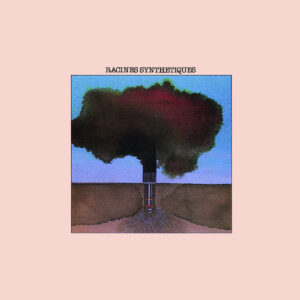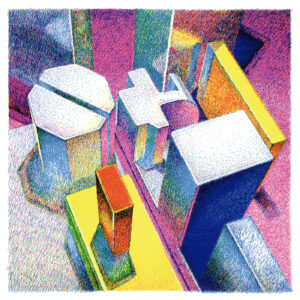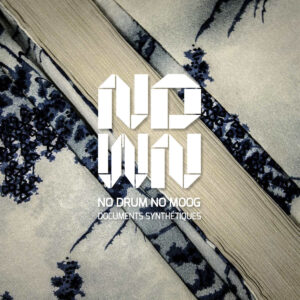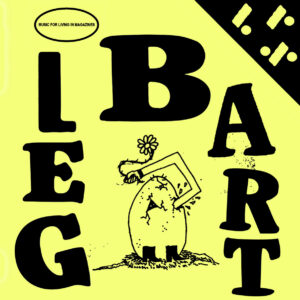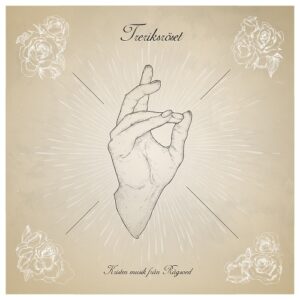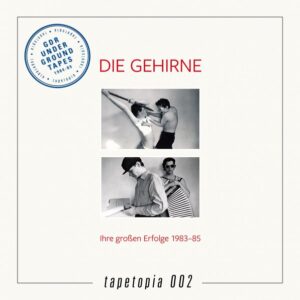Beschreibung
„In 1983, some more subdued sounds began to waft from the GDR punk underground into the second half of the ’80s. At five to the end of time, it was perpetually striking midnight and the occasional punk band would mix a little laudanum into their potential for aggression. Portents in this vein preceded a dark wave whose foamy crest would break on fog walls of dry ice. Especially in Leipzig and East Berlin, a chain-rattling zeitgeist produced bands that drew from a dark well. Many of these bands arose from the still hot or already cold ashes of punk.
The two founding fathers of Neuntage Alt, Rene? Glofke and Taymur Streng (nicknamed “Strangler”), knew each other from the East Berlin punk scene. The third man aboard, Mike Sauer, played drums in the early 1980s for Sendeschluß, a punk band that, lost in thought somewhere in the no-man’s land between punk and post-punk, faded away in 1984. Punk was no longer the order of the day, but it was a form of expression among many and easy to combine. Glofke and Streng found common ground in experimental set-ups with such other-worldly names as Medusa Brahma or Die zeitweilige Erscheinung. From this far-flung point of departure, a short tunnel led straight into the black light of Neuntage Alt, the coldest star in the low-hanging sky above East Berlin.
Neuntage Alt appeared at the end of 1986, during the last blackout phase of the GDR, on the threshold between the underground and the so-called “other bands” – a scene that used the non-socio-critical approach of German Wutwave (“anger wave”) in order to be allowed to perform publicly. In the context of this scene, Neuntage Alt did not belong to the inner circle. Moreover, the band’s subcultural base was initially in Mahlsdorf, on the south-eastern edge of East Berlin. This was where the DIY sound studio of amplitude apostle and great modulator Taymur Streng was situated. Strangler held the position of house electrician and keyboard god in various projects. One of them had the bland alias Mahlsdorfer Wohnstuben Orchester, behind which the avant-garde court chapel of the bungalow studio was concealed. There Taymur also conspired with the East Berlin underground band Ornament & Verbrechen (tapetopia #001). Ronald Lippok of Ornament & Verbrechen remembers how once, at the opening of a joint session, he and his brother Robert attended Taymur’s engaging slide show of his collection of test patterns. Afterwards, they created a piece with the psychedelic title “Das sentimentale UfO”, which sheds an iridescent light on the bizarre atmosphere in the studio. Taymur’s obsession with technology was legendary. The home studio was also his living space; a circuit, a machine park of screwed and soldered equipment, a single keyboard orgy. His own creations were also based on circuit diagrams found in the radio amateur magazine “Funkamateur”. Its somewhat clueless subtitle “Praktische Elektronik Fu?r Alle” (Practical Electronics for All) was presumably not meant to include the East Berlin underground, since the magazine was published by the GDR’s military publishing house and appeared under the auspices of the paramilitary Gesellschaft fu?r Sport und Technik (GST).
Besides “Ma?cki” Sauer as second organist, Taymur Streng’s and Rene? Glofke’s synth- pop chapter also included drummer Sven Schwebel and Ma?cki’s brother Ingo Sauer on bass. The band’s first tape “Waif” was made by this line-up, and it would remain the only one as Neuntage Alt (Nine Days Old). The name harks back to an English nursery rhyme from the 18th century, which was widespread as a singspiel or clapping game:
Pease porridge hot, Pease porridge cold. Pease porridge in the pot, Nine days old. Some like it hot, Some like it cold. Some like it in the pot, Nine days old.
All that soon remained of the original band name was an enigmatic Neuntage, with the Alt dropped. Neuntage was played only once on “Parocktikum”, the crucial forum for alternative music. Unlike other permanently present colleagues, the band would never again appear in the programme of the DT-64 broadcast. This is striking, since no other post-punk band in the GDR was blessed with such an unconstrained and incidental understanding of melody, there was hardly any equal in the East German underground or overground.
This lack of appreciation for the band was also apparent on the occasion of their first “classification” for a playing permit, this time, however, in an exemplary manner and thus in conformity with the system. The jury of music academics’ and cultural functionaries’ distrust of English lyrics was rooted in a paranoia that critical messages could remain undiscovered and hidden from their largely untried school English. Neuntage, true to their own preferences, set a text by John Foxx to music or extracted the essence from lyrics by Robert Smith and reinterpreted them. However, the darkwave band chiefly used English poems, appropriately from the “Weiße Reihe” (White Series), a poetry edition published by Volk & Welt and featuring William Butler Yeates, James Joyce and Stephen Crane, among others.
The jury was also out of its depth with the band’s arrangements. Neuntage created transitions between the songs that broke the pop appeal of the concert with experimental intros. This resulted in the jury’s final break with the band’s concept. Both correctly and incompetently, it stated that it hadn’t heard any beginnings or endings, and that the audience should be given the opportunity to clap between songs. The band was given an equally unwilling and malicious “Grundstufe” (basic level permit), the lowest of all possible permits, which unfortunately determined the possible ticket prices for shows. The second classification produced a “Sonderstufe” (special level permit), but in September 1989, on the brink of the GDR’s demise, it was no longer worth anything. The permits did nothing to influence the frequency of live performances by Neuntage anyway; from 1988 onwards, the band would perform frequently, also as the opening act for Die Vision and with AG Geige.
During this period, Neuntage compiled a second tape: “Soldier”. Sebastian Lange from Die Vision now backed up the synthetic sound with guitar. “Soldier” was less intended as a concept album, even though it seemed self-contained, but rather served, like “Waif”, to document a creative phase. Rene? Glofke bought the cassettes for the “edition” of less than fifty copies from Vietnamese guest workers who, like him, worked in the VEB Kombinat Narva, the East Berlin light bulb factory. The cover of the tape shows the shot to shreds and correspondingly blood-stained shirt of Russia’s last tsar Nikolai II, whom the Bolshevik party and state leadership had killed by a firing squad in 1918, along with the tsar’s entire family. Using this photo in the GDR was at least risque?, although it was not meant as a blatant comment on the state’s uptight historiography. In the GDR, associations of this kind hardly met with understanding. In the meantime, projections were used at Neuntage concerts that would have been unthinkable at public performances in the mid-1980s: battle scenes with National People’s Army’s toy soldiers played out in wild cross-fades in the band’s back. These ultimately harmless illustrations of the GDR’s own militarism also went unnoticed, the control state was slowly losing its shape.
The question of Neuntage’s artistic shape arose at the same time. Rene? Glofke played drums with the darkwave band Fellini Prostitutes, which was more acoustic than Neuntage. To Taymur Streng, on the other hand, Neuntage didn’t take its minimalism far enough. He became an audionaut and would later drive his abstractions into ever sparser soundscapes with the Kunstkopf ensemble. The shadow play with shapes perhaps found its most direct expression in the project L’ambassadeur des ombres, in which Neuntage and Die Vision dissolved into a dark band hybrid. For Die Vision, the project was an offshoot, for Neuntage, on the other hand, the name L’ambassadeur des ombres acted as a binding omen; to this day, the band has remained largely unrecognised in the shadow of itself. „
Tracks
01. Alone
02. Soldier
03. Golden Hair
04. Wedding Anniversary
05. Tidal Wave
06. At Noon Of Day
07. Secrets
08. Hanging Garden
09. Any Seems To Loosing
10. The Hand
11. Jingle
12. Roman Rye

